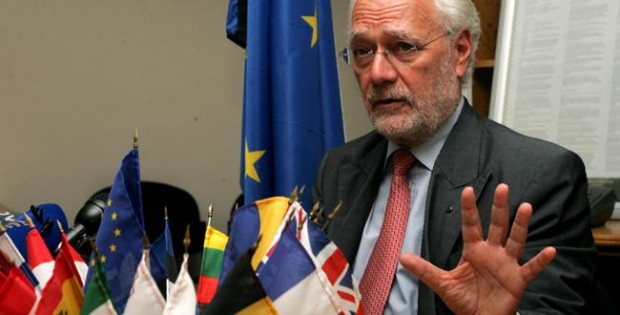Radio Erena: March 31, 2014

The European Union-Africa Summit hangs in the balance. Africa is concerned with the way Europe is cherry-picking African participants for the indaba, among other issues. Our Political Editor Hebert Zharare (HZ) caught up with EU Ambassador to Zimbabwe Mr Aldo Dell’Ariccia (DA) to discuss these issues. The following are excerpts of the interview.
HZ: How advanced are preparations for the EU-Africa Summit on the 2nd and 3rd of April?
DA: They are progressing very well. There have been meetings of the steering committee on March 14 and another one at the beginning of this week on the 24th and 25th of March. There will also be another meeting on March 31 and on April 1.
We know that on the African side there has been a meeting of the Permanent Representatives Committee of the African Union, which has made the recommendations that were reported in your newspapers. As for these recommendations, as the word indicates, they are just recommendations.
It will now be up to the president, the chair of the African Union, Mauritania, who was present as far as I know in the Council of Ministers to transmit to the member states of the African Union and a decision will be taken on what follows from that.
These recommendations came as a surprise to us. We will see how things will follow.
HZ: Are these developments not going to affect the preparations of the summit?
DA: The preparations should continue as normal. If there is a decision from the side of the African Union to postpone the event, then we will see the reaction of the European Union.
You have to consider that so far 48 African countries have confirmed their participation of which 41 are represented at the level of the Head of State and Government. All 28 states of the European Union will attend the event of which 23 are represented at the level of the Head of State and Government.
You can imagine that to mobilise 64 Heads of State and Government is something which is complicated and if the proposal is to adjourn or to postpone the meeting, then I am not sure if it will be easy to find another date that will be suitable for everyone. Of course, this is something that can be decided at the highest level.
The fact is that this Summit has been prepared for a long time, beginning just after the end of the previous summit in Tripoli in Libya in 2010. This is a complicated event to organise: you can imagine the protocol, the security and the logistics.
HZ: Explain how you chose participants? On the list there are some countries like Egypt where president Mohamed Morsi was deposed with the assistance of the military and the AU has made its position clear on that.
DA: You have to consider that the EU-Africa Summit is the meeting between the European Union and African continent. I want to be very clear on that, it is not the AU-European Union meeting. Participation is not guided by the membership of the African Union.
This event is the highest incidence of political dialogue between the European Union and Africa and the intention of the European Union is to make it possible to talk to all who are relevant to the subject of the event, investing in people, prosperity and peace and be able to talk very frankly with them and to have progress in these partnerships between the European Union and this region.
That is why Egypt has been invited despite the fact that it has been suspended from the African Union.
HZ: So can you explain why countries like Eritrea and Saharawi Arab Democratic Republic have been left out?
DA: Let me correct that misconception. Eritrea has been invited at the level of the president and the president declined and we were told the vice president is coming. We got confirmation that the Minister of Foreign Affairs will attend the event.
As for the case of Western Sahara, the European Union resolved that they could not invite a country which is not recognised by the whole international community. So there we have a problem, we cannot invite them as fully-fledged partners.
==================================
